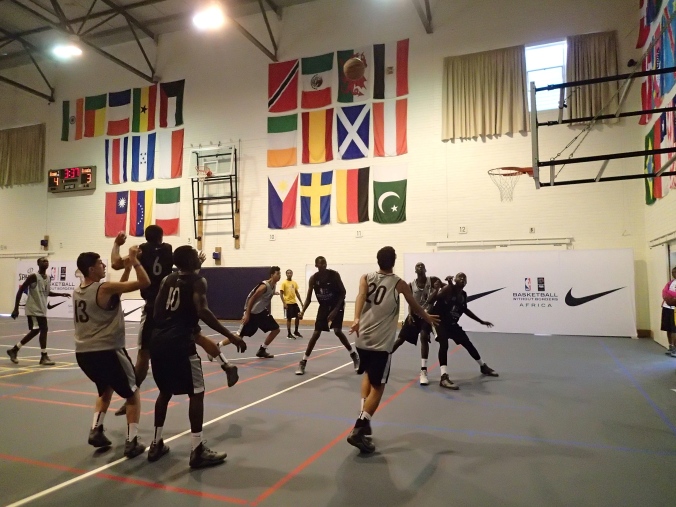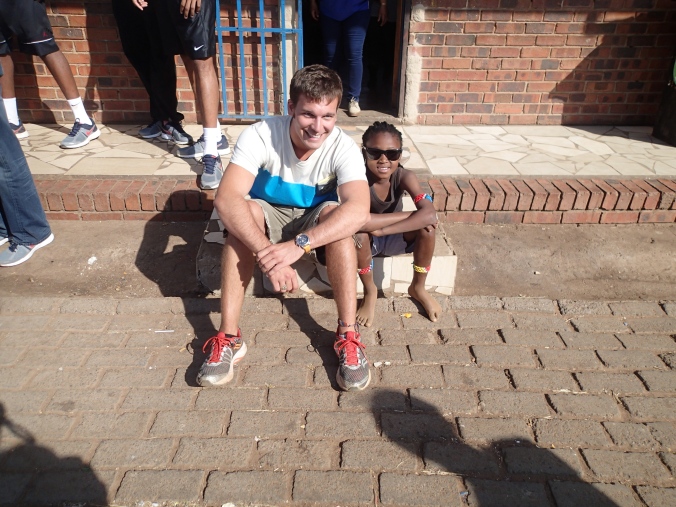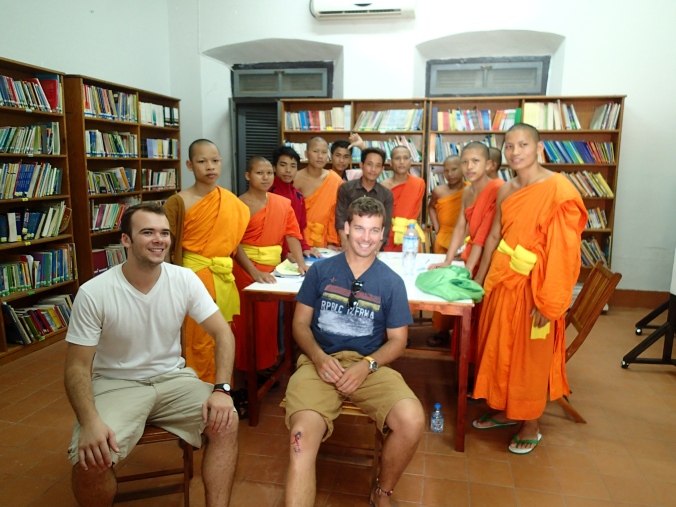I was blessed with an unparalleled literary education as a child. Through happenstance and luck, Mary Barnes, the saintlike mother of one of my classmates, volunteered to take a group out of regular English and expose us to the sort of literature that reveals elements of the human condition, instead of being chopped apart for a 10 year old to be able to identify a protagonist and antagonist.
For years, she would come rescue about 6 of us from the monotony of textbook English and give us first the “Great Books” readers, then moved onto one offs with Gene Stratton Porter, Poe, and other authors of note. She taught us to consume literature as opposed to merely reading it. We’d debate and argue the motives of Poe’s villains, and contemplate in heartbreaking agony the plight of Porter’s immortal Limberlost orphans.
For all the thank yous I’ve meted out in this life, I’ve never properly thanked Mrs. Barnes for a piece of my education which has given me more than the rest put together.
On bended knee Mrs. Barnes, I thank you.
I thought of her on my 27 turned 30 hour train ride from Cape Town to Johannesburg. Most people would think that such a journey was a hellacious horror to be avoided at literally any cost. However, as an American, the novelty of train travel has not yet escaped me. Besides, there is a dining car and I still had a bottle of Pinot Noir from 2004 to keep me company. It couldn’t be that bad.
Well had there been heat, I would have been correct. The Kalahari desert was getting down to about 15 degrees Farenheit, and that old steel box gets cold in the evening a helluva lot faster than it gets warm in the morning. I felt for a moment that my left asscheek and I were on the verge of ending our incredibly close 27 year attachment, but luckily that terrible fate was narrowly avoided.
Given that you can’t really stare out the window at the fantastic beauty of the South African countryside for a day and a half, I got into my Kindle and found something to sink my teeth into. I decided to try my luck with that greatest of Victorian bards, Dickens.
Having failed to get interested in Oliver Twist once, I felt that it was my duty as a reader to find out what all the fuss was about.
For those unfamiliar with the story, the main gist is this. An orphan boy named Pip is mysteriously invited to the home of a wealthy recluse, Miss Havisham. Upon arrival, he falls inexorably in love with her coldhearted niece, Estella. One day he is informed by a lawyer that he has been anonymously bequeathed an allowance and estate in trust, which allows him to become the sort of gentleman whom he believes that Estella could love. His transformation and internal conflict from blacksmith apprentice to high society London gentleman causes most of the action in the tome.
Mrs. Barnes, why didn’t you tell me about this Dickens chap?
Having read more than my fair share of bildungsromans (new favorite word meaning book about one’s formative years) I was immediately drawn to the internal moral complexities of an old Pip looking back on this time in his life with both wonder and regret.
As he escapes his humble beginnings, he starts to find more and more shame in that which he came from. While I’m no Victorian orphan, I found a few parallels in my own life, as all good literature will show a determined reader.
I grew up in first wave of Midwestern economic decimation. The halcyon days of the major factory bringing prosperity to small communities across the Rust Belt were just coming to an end. My town had three major employers when I was growing up, a naval weapons base, a Ford factory, and a GM foundry.
These were places where solid middle-class lives could be built. Overtime paid the bills when times were tough, but the wages were quite high. People drove new cars because of the employee discounts, and it wasn’t rare at all to see a union guy on the line with a boat behind his truck on the weekends.
Then the party stopped. Globalization took hold, and the world realized that paying these wages wasn’t competitive against labor in the developing world who would happily do the same work for ¼ of the price.
The Ford plant shuttered its doors when I was about 13, and the GM plant started phasing out the legacy union contracts, hiring back replacements from my generation at half the rate that their fathers made.
So this was the economic reality that I grew up in. When people ask me if I grew up wealthy, I usually reply that I grew up about 2/3s of the way up an incredibly short totem pole.
My parents wanted to augment my education, poor Mrs. Barnes couldn’t be expected to teach me everything that I needed to know in the world, so they sent me during the summers to Northwestern University.
Boy did I feel like Pip then. I walked in having no idea what wealth or talent even looked like. I thought that owning a small town car dealership provided all the fantastic wealth that one could ever in his wildest dreams desire. Then I met a few kids from Lake Forest, on the famed North Shore of Chicago, and the world became a different place. The children of famed authors, doctors and CEOs were sitting next to me, wondering who let in the peasant with his one faded Abercrombie shirt.
I was again blessed with another great name from my educational past, Joan Miller, who taught me that rich kids have no inherent virtues impossible for the lower classes to attain. They are beatable, so long as you aren’t competing in the arena of consumption. It took me a decade or so to finally believe her, but it was one of the more valuable life lessons that I’ve been party to, and I’ll go to my grave thanking her for it.
And so from there I set out on my own Dickensian quest. To become one of those rich kids, while retaining the virtues of my humble beginnings.
In hindsight, I should’ve set off for the Holy Grail o
Much more easily attainable.
So I set forth, first to Purdue where I held my Bedfordian roots proudly for all to see. Perhaps too proudly, as a certain fur draped dame in Switzerland loves to remind me. I retained the twang that was so graciously beaten into me by my high school classmates and tried my best to retain those friends from home as we went down our diverging paths.
I watched as more and more of my friends from home found themselves recipients of all expenses paid trips to Iraq and Afghanistan, while my new friends at school wondered largely “just who in the hell was fighting these stupid wars?”
I got the distinct displeasure of burying a few of those former classmates of mine, as Bedford slipped from a thriving community into the throes of an unemployment/drug use death spiral.
Slowly my pride in being from Bedford was falling away. I knew that I could never go back, never again live in a place that harbored people who wouldn’t even help themselves. My love started to get callous, and my new line about my hometown was, “a great place to be FROM, not in.”
I saw this reflected on many others who got “out.” There was no intention to come back, and only a nostalgic pain that the place was going to hell in a handbasket.
From Purdue, I got into the rarified air of high finance. Now I was with people who really knew what wealth was. The kind who could buy my parents’ house 3 times over with a quarterly bonus check. They weren’t what you’d call “good people” but they seemed to like me and they loved the novelty of having someone from “the farm” around.
I think I inherently knew that I had, in Dickens’ words, “no hope of any personal participation in the treasure” but I felt like I almost owed it to everyone back home to find out what these “Masters of the Universe” were up to in their mansions and clubs.
So I buffed up my “talking points” about home and strapped it to my chest. Literally, I was IND in the oil and gold pits of NYC. I talked of the virtues of a small town life, like I was heading back there as soon as the closing bell rang. I spat with disdain at the nonsensical waste of money around me, at the slavish devotion to appearances, and the complete disconnect with what I considered to be “the real world.”
At first it was just an act; I loved it all. I loved the glitz and the glamour. Beautiful girls from all over the world flocked to NYC, and having Easter dinner with a federal district judge in a 20 million dollar home in Connecticut, drinking $500/bottle wine was a dream come true.
I had arrived.
Unfortunately, as any good actor will tell you, at some point the character will consume you if you play him long enough. It gets even trickier when the character you’re playing is an earlier iteration of the man in the mirror. At some point I was trapped, between putting up a false face of disdain (outwardly failing in my initial quest) and actually embracing the life that I had come to enjoy.
Oh but fate’s means of arranging roadside conversions are unparalleled.
There wasn’t a single “scales from the eyes” moment, but one day I woke up and knew that the character I had been playing was right. This was absurd and it was unhealthy.
My rich friends had drug problems of their own, they were just with the more socially acceptable cocaine instead of homecooked meth. The jobs they held were given to them for one reason or another by some backslap connection, and they felt no real sense of satisfaction from any of it.
Those who had grown up in more humble circumstances were no happier, as they’d let their Pip die years ago, content to drink and womanize instead of thinking about the bigger picture.
The whole “scene” that people were so desperate to integrate themselves into was just a flashy set of distractions from lives neither fulfilled nor examined.
Some of the only people I met in the whole ordeal who were actually happy were the two idealists I found running the SEED Project. They’d both grown up in the rarified air of the NYC elite, but they were running an engine for the betterment of their fellow man. You could see it on their faces.
Graduates of Princeton and NYU, they’d seen all that money and the “scene” had to offer, and they made a conscious decision to work for an amount of money which would be considered poverty by any of their well-heeled contemporaries in exchange for having the creative ability to change the fate of children (and eventually a country) halfway around the world.
I was drawn to this, at first for the basketball (I might be a Purdue fan, but it still fills my heart with pride that Damon and the 1990 Stars hold the record for most people ever at a high school basketball game) but eventually for the stunning opportunity to actually HELP someone.
My own cause from home, my beloved Thornton Memorial Boys Club, was gutted by a group of people slightly higher on that very short totem pole. One by one, the men who had taught me the value of service unto others, men like Jim and Jeff Jackson and Jimmy Gratzer were fired through the petty small town machinations of a cabal of people whose collective ego far outweighed both their talents and abilities.
I needed something towards which to redirect my efforts. Something bigger than myself or work, and something outside of my on-again, off-again love affair with my hometown.
Noah and Romola generously offered to let me come help, so now I’m on my way to Senegal.
The race hasn’t finished yet, but my quest was always two fold. I’ll worry about the money some other day, best to get back to those small town virtues before they’re lost for good.
Another wise woman from Bedford once told me, “what of a man who gains the whole world but loses his soul?”
Mickey, turns out I don’t really want to find out.
From Main Street to Wall Street to no streets, the quest continues.
But Bedford, I miss you more than you’ll ever know.





















